Welcome! You are inside the mind of the Atlas team.
We write about current topics that will help you learn more about communication, international promotion, digital marketing and new technologies.
Categories
The 2023 FRI bio-organic food report is out
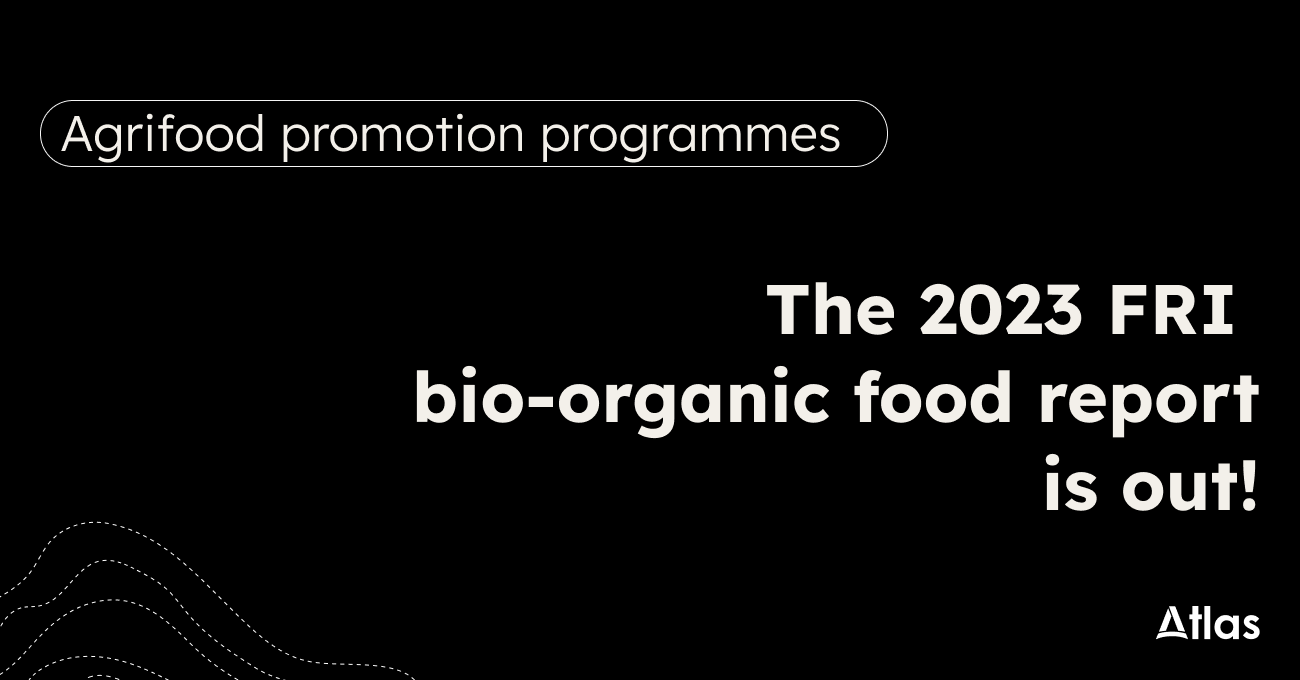
The price of the product is much more important than the taste - according to the latest research from the Food Research Institute.
According to the latest research released by the Food Research Institute, a Polish research institute specializing in the analysis of the agricultural and food market, the prominence of price over taste stands out in consumer preferences for products.
This interesting insight, obtained from their latest study conducted last April, showcases the perceptions of a representative sample of respondents from relevant markets such as Germany.
The research, an integral part of the FRI Index, reveals that while the origin of organic food holds importance for respondents, it doesn't carry the same weight as the price factor in their purchasing decisions.
Bio-organic food production in the European Union
This information is key when strategizing and presenting EU Programmes for Agricultural promotion, specially for those campaigns targeted at European markets, since the European Commission has recently been taking action to boost organic production.
Such purpose is shown in strategies like the Action Plan designed for the progression of organic production through the introduction of 23 measures organized into three main strategies: enhancing organic products consumption while upholding consumer confidence, amplifying production, and further refining the sustainability of the sector.
This Action Plan sets its sights on achieving the goal of having 25% of agricultural land dedicated to organic farming by 2030.
The report in a nutshell: recent findings by the Food Research Institute
As mentioned before, the importance of the price criteria is notably remarkable, as suggested by 61% of the participants, possibly due to a notable inflation rate. Following closely are factors like taste attributes (slightly below 38%), product's country of origin (35%), and its external presentation (34%). The certification for organic food holds significance for just under 30% of the surveyed individuals.
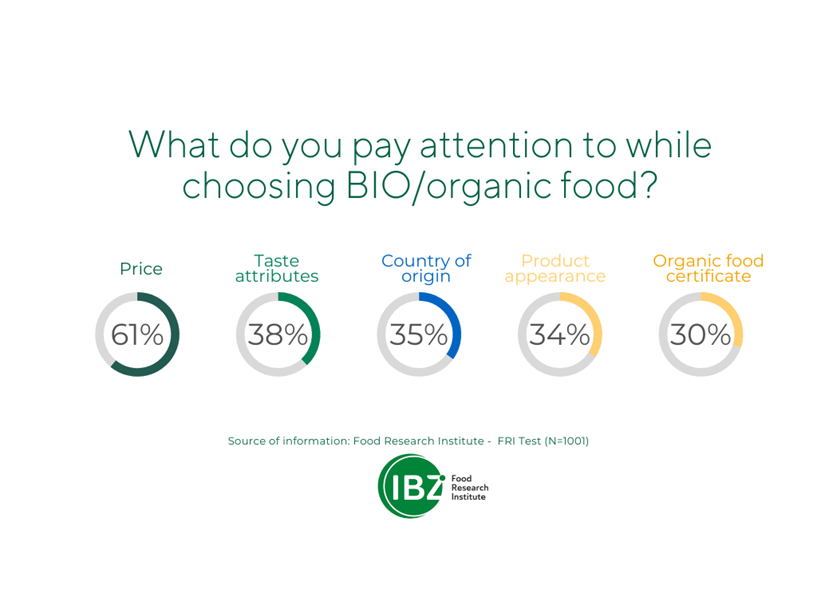
It stands out how the majority of consumers have shown to associate certain countries to bio-organic products in Europe, not only as a whole, but by category:
- For instance, Germany leads this product association as the primary producer of organic/BIO food in general, with a substantial 86% of respondents. Moving to categories, it retains the head position in "confectionery products (69%)”, “vegetables” (75%) and beverages (76%) categories.
- The Netherlands secured second place at 31% in general association to bio/organic products, 29% in confectionery category, 41% in vegetables and 28% in beverages.
- France and the US dispute the third position in several categories. While France heads the third place in the general association category to bio/organic products at 25% and vegetables category at 29%, the US remains the third most elected choice for confectionery (28%) and beverages (25%).
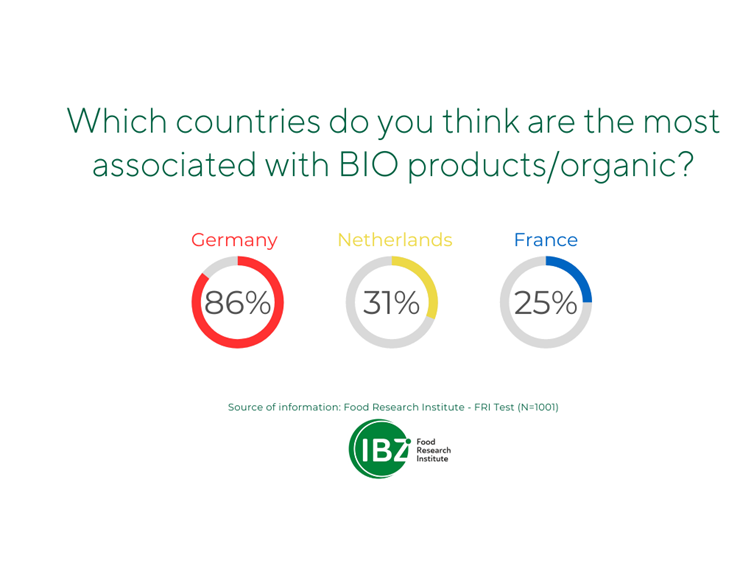
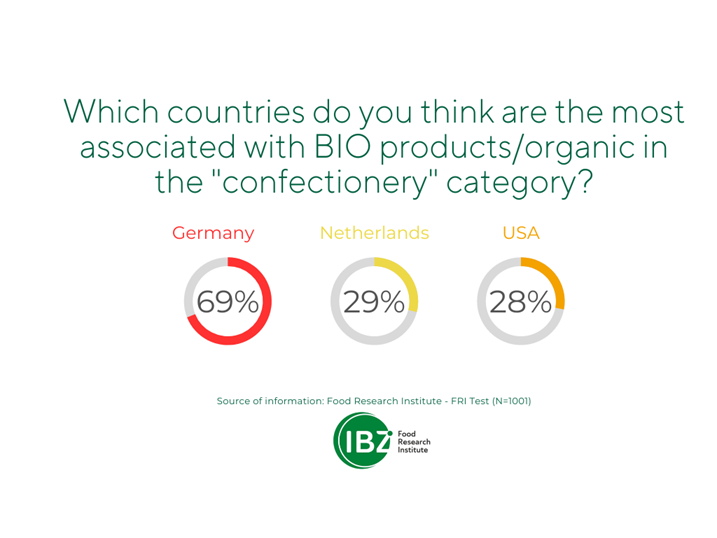
In terms of price-quality relation, several interesting insights were obtained:
- Approximately 44% of consumers agreed (with over 16% fully agreeing) that higher prices of organic products correspond to notably higher quality.
- On the statement that higher prices result from elevated production costs, 47% of respondents concurred. Around 25% held a mixed stance, and an equivalent percentage expressed negative sentiments.
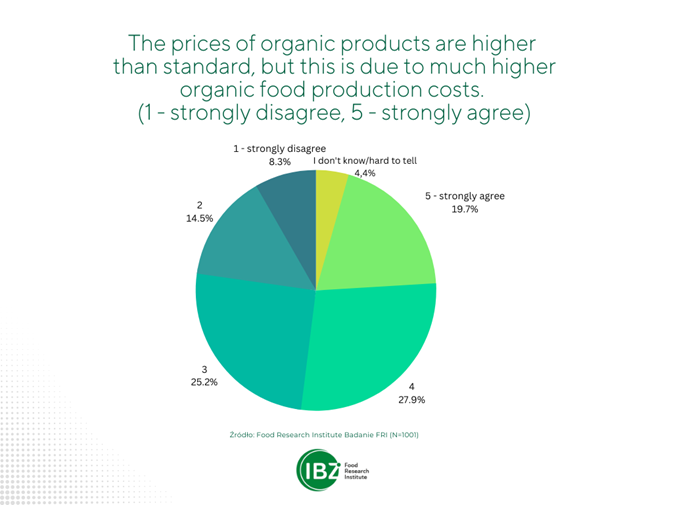
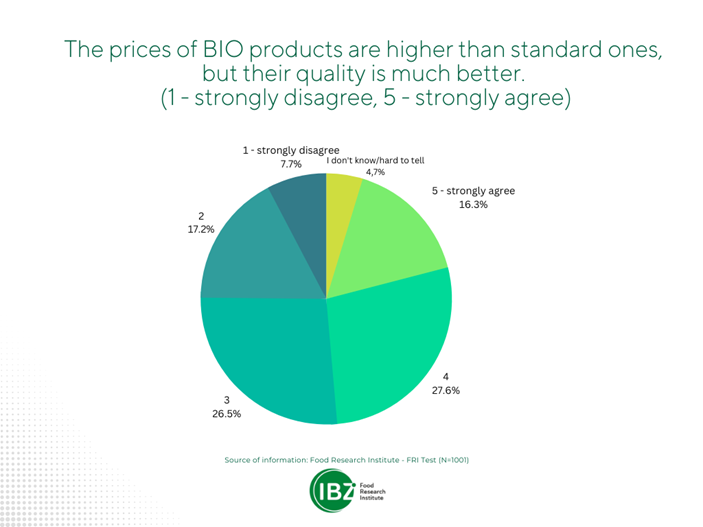
- Corresponding to the place of production significantly influences the quality of organic food products, over 44% of respondents agreed with this statement.
- Opinions were less homogeneous regarding the trustworthiness of organic production conformity certificates. Only 35% of respondents expressed trust in such certifications.
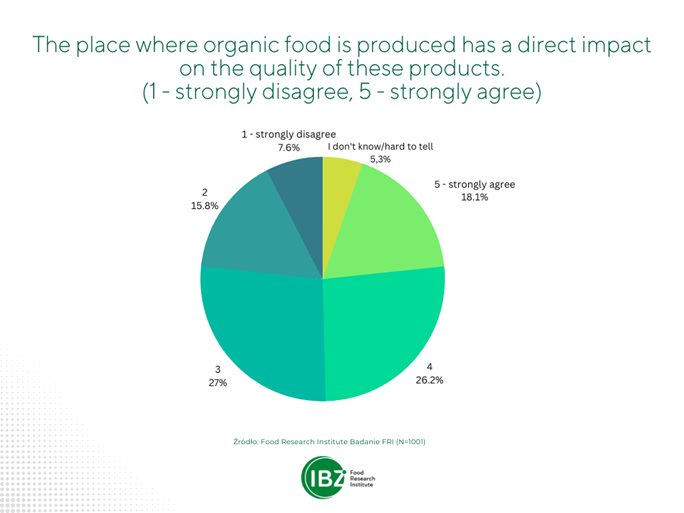
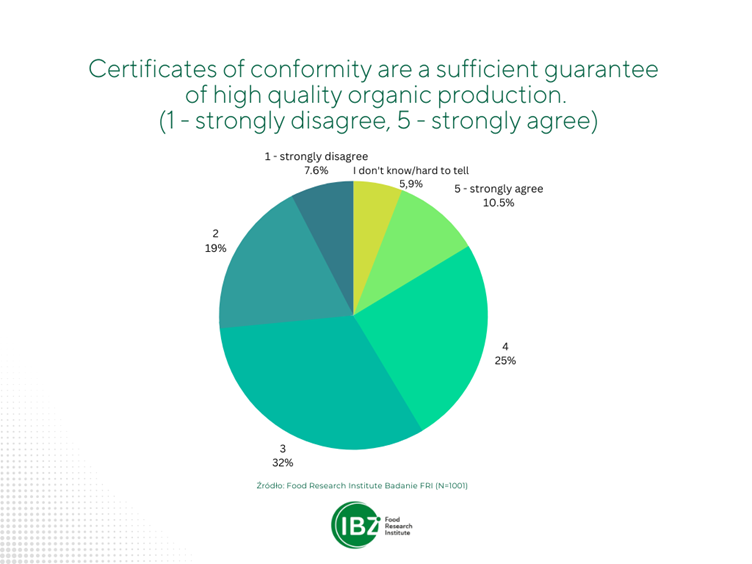
- The statement asserting that European BIO products guarantee the highest quality due to EU legislation, product traceability, and origin garnered agreement from 38%.
- Surprisingly, opinions diverge concerning the notion that organic products are healthier than standard ones, despite this being a fundamental premise of ECO product brands. A mere 14% of respondents fully agreed with this statement.
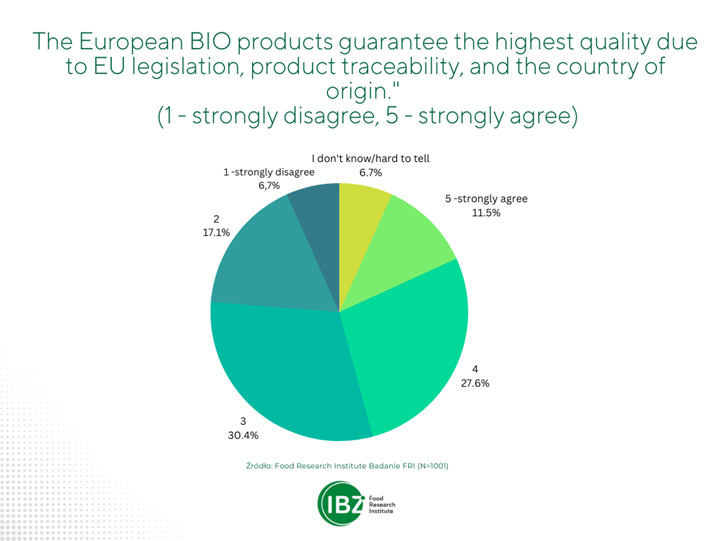
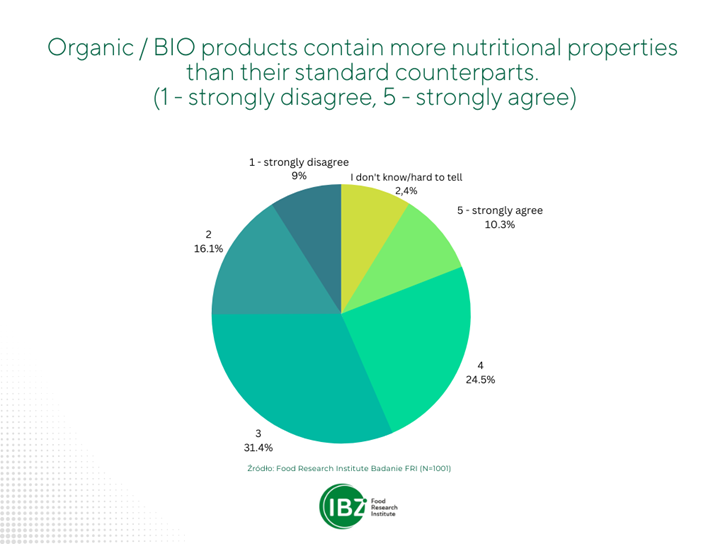
- Opinions were more balanced in response to the statement that consumers should have the freedom to choose between standard or organic food. Over 54% of respondents agreed.
- Finally, it's worth noting that for over 65% of respondents, the origin of purchased food being from organic farms remains important. This indicates that consumers consulted prioritize organic production itself, even though the resulting benefits might not hold as much significance for them.
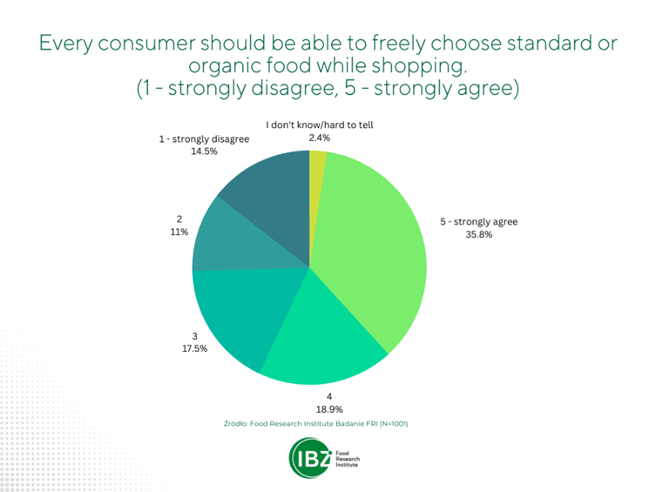
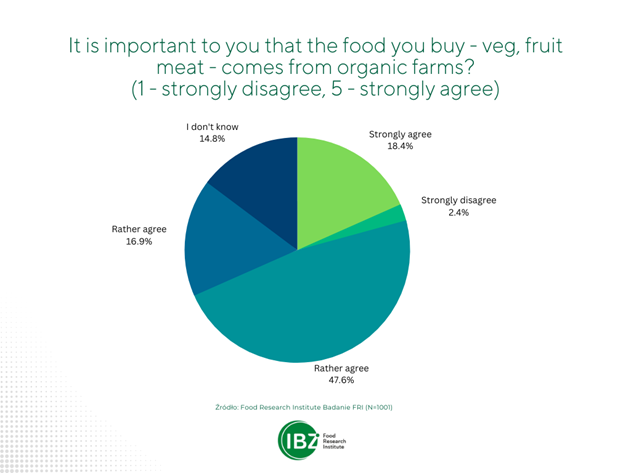
Promoting your bio and organic products in the European Union or in third countries is a must!
Is your organization actively engaged in the promotion of bio and organic products throughout the European Union?
If so, we invite you to consider the value of the information provided. Should you find this information beneficial and aligned with your promotional plans, we encourage you to connect with us!
If you’re an established bio/organic association of producers, chamber of commerce or any similar institution, we can help you get up to 80% of your total campaign spend thanks to EU funding! We specialize in consulting and access to European funding opportunities, seeking suitable collaboration partners, developing market analysis and promotional activities strategies that could further support and enhance your efforts in promoting bio and organic products in the internal market.
If you’re a company producing bio/organic products, we can help you market your products in the countries of your interest by supporting your promotional activities: tastings, social media campaigns, product presentations, you name it!
Let’s chat!
Ana María Martín del Moral
